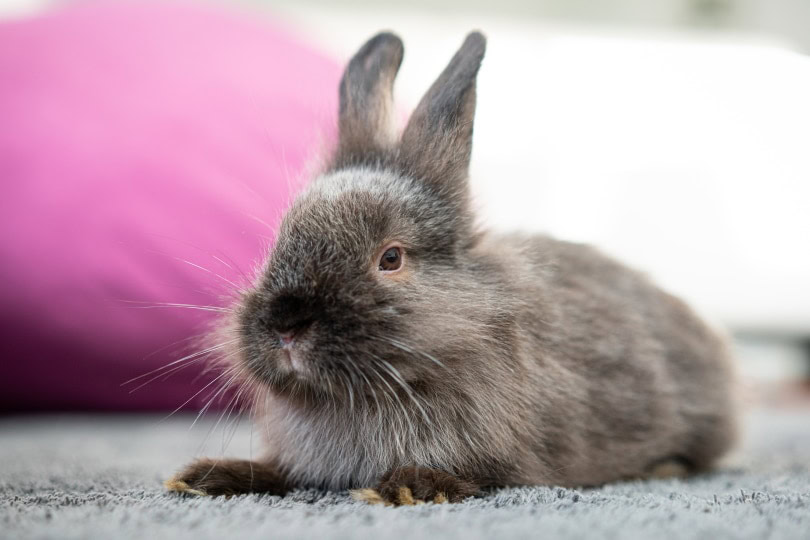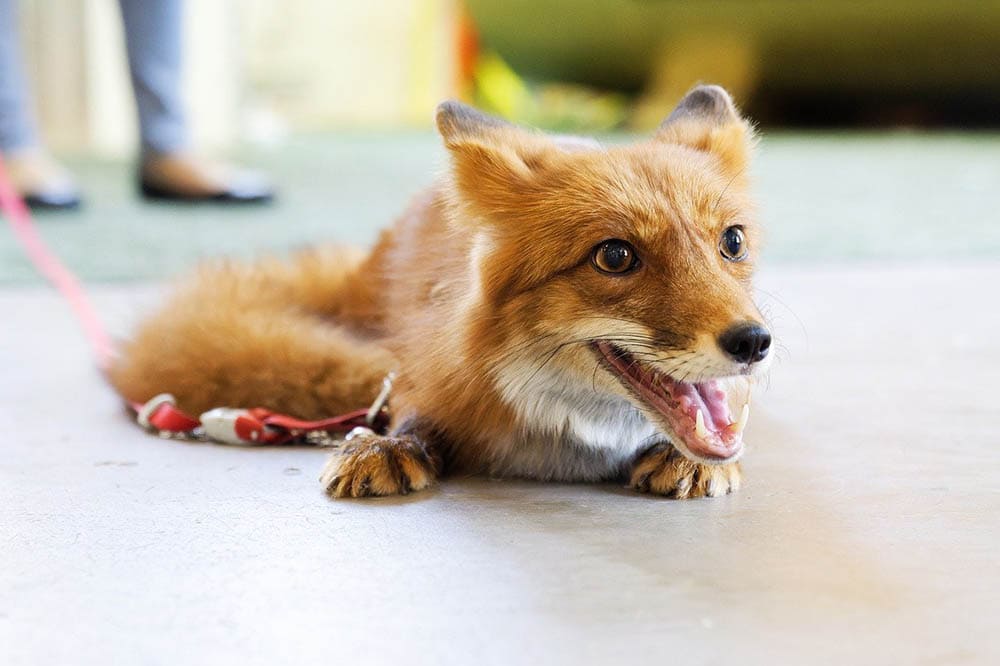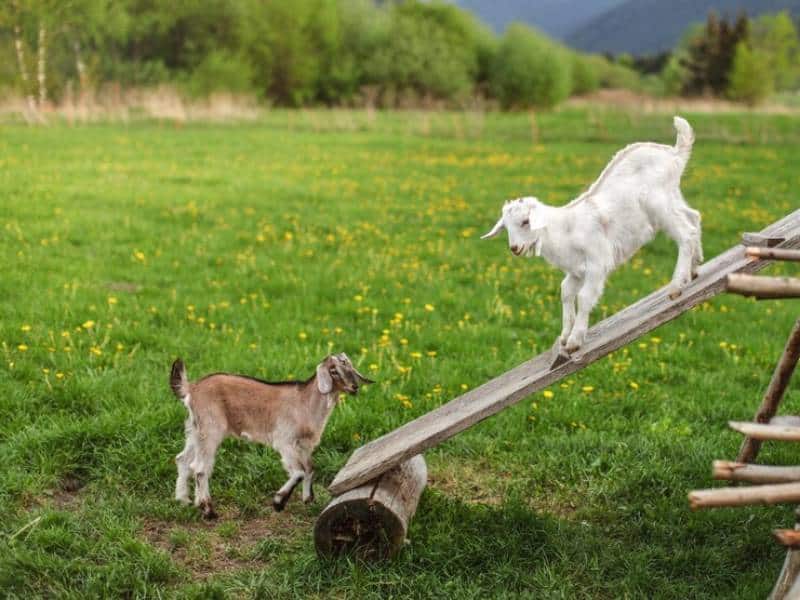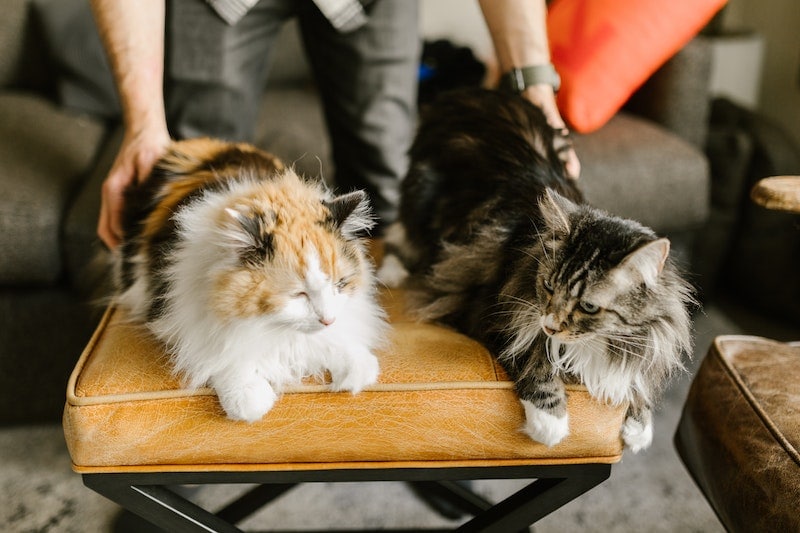VET APPROVED

The information is current and up-to-date in accordance with the latest veterinarian research.
Learn more »Click to Skip Ahead
Rabbits are adorable and popular pets, often living indoors and enjoying time to roam around the house with their beloved humans. Fortunately, these cuddly pets also have a reputation for being relatively odorless compared to some other pets when properly cared for and kept.
Rabbits are generally clean animals. While they have a mild and often pleasant natural scent, the occasional strong odor of rabbits has more to do with the way they’re kept than the rabbits themselves. In this way, they’re like house cats. If you’re struggling with rabbit odors, here are some possible reasons and tips to get your house odor-free.

The 6 Ideas & Tips on How to Get Rid of Rabbit Smell
1. Rabbit Poop
Poop from a healthy rabbit will be formed, round pellets. Rabbits do have a type of poop known as cecotropes, which are small and mushy. When these are squished, they can have an unpleasant type of odor.
Fortunately, rabbits typically eat cecotropes to reabsorb nutrients, so there shouldn’t be a lot around. If you are finding a lot of cecotropes, consult with your vet as it could indicate that your rabbit has an underlying health issue or needs a more balanced diet.
2. Rabbit Pee
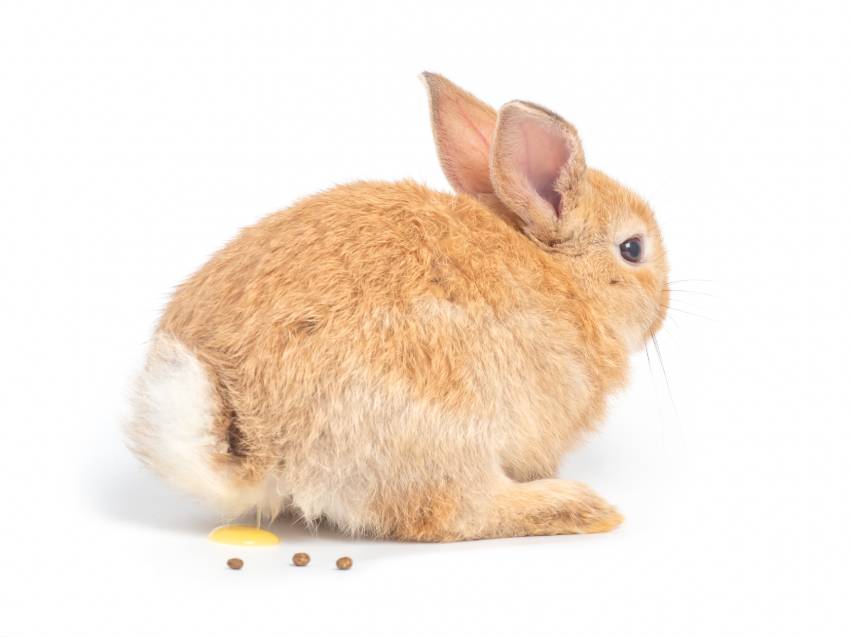
Rabbit pee can be quite stinky. Because of the high concentration of ammonia in rabbit pee, it can have a strong and unpleasant odor, which can vary between individuals, depending on whether they are neutered or spayed or have an underlying urinary issue. Male rabbits tend to have smellier pee than females, but not always.
The best way to keep this odor at bay is by scooping out the litter box every day. This will keep the odor to a minimum and ensure your rabbit will still use the litter box, rather than choosing to go elsewhere because the litter box is dirty. If there is a sudden unpleasant odor to your rabbit’s urine, or it appears to be a different color or texture, containing sludge or blood, seek out prompt veterinary attention.
- ADVANCED ENZYMATIC CLEANER - Penetrates the most stubborn smells and stains at the deepest molecular...
- FOR ANY MESS, ON ANY SURFACE - This pet odor eliminator cleans your carpets, floors, furniture,...
- FRESH, NATURAL ODOR - Our unique formulation doesn't rely on dangerous or unpleasant chemical...
If you're over your house smelling like you've got a pet, it's time to check out the Hepper Advanced Bio-Enzyme Pet Stain & Odor Eliminator Spray! It removes even the most stubborn smells and stains and comes with a 100% satisfaction guarantee. Click here to find out more about this amazing product.
At PangoVet, we’ve admired Hepper for many years, and decided to take a controlling ownership interest so that we could benefit from the outstanding products of this cool cat company!
3. Spaying and Neutering
Spaying or neutering rabbits is often recommended for several reasons, odor among them. Unneutered male rabbits can emit a strong smell that’s used to attract mates through courtship or mark territory, using urine and scent gland secretions. Speak to your vet about getting your rabbit neutered.
Both male and female rabbits can spray pee to claim territory as well, and this can be reduced by getting them spayed or neutered.
- See Also: Can Two Female Rabbits Live Together?
4. Hutch Conditions

Your rabbit’s hutch can be a source of odor, but it’s easy to correct by cleaning the cage regularly. If your rabbit isn’t litter box trained, you’ll be dealing with more cleaning to keep the hutch in good condition. With a litter box, the mess is more contained. You should also make sure the hutch and exercise pen are large enough—your rabbit doesn’t have incentive to stay clean if they can’t separate the clean space from the dirty space.
The type of hutch and cleaning solutions you use will also make a difference. Playpens are generally easier to clean since you only need to move the sides around and vacuum or mop the surface. A rabbit hutch is more challenging and requires you to use the proper cleaning solution since the hutch is a bit more contained and often secluded. Be sure to use a rabbit-friendly cleaner that’s safe and designed to eliminate odors. Avoid using powdered cleaners, such as baking soda, which can get into your rabbit’s respiratory or digestive tract.
5. Health Problems
As mentioned, healthy rabbits don’t have strong odors. A rabbit with health problems can be smellier, however. Diarrhea or loose stools, as well as underlying urinary issues or infected scent glands, can lead to a strong and unpleasant smell, so be sure to take your rabbit to the vet for a checkup.
Rabbits are like house cats and tend to groom themselves regularly, but this can be difficult for obese rabbits or elderly rabbits with arthritis or other mobility issues. If your rabbit can’t move the way they used when cleaning themselves, they can develop an odor. In these cases, it’s best to help your rabbit clean themselves, and if they’re obese, provide a healthy diet and encourage your rabbit to exercise more. Obesity creates more issues than just odor, so it’s best to get your rabbit to an ideal weight.
6. Scent Glands
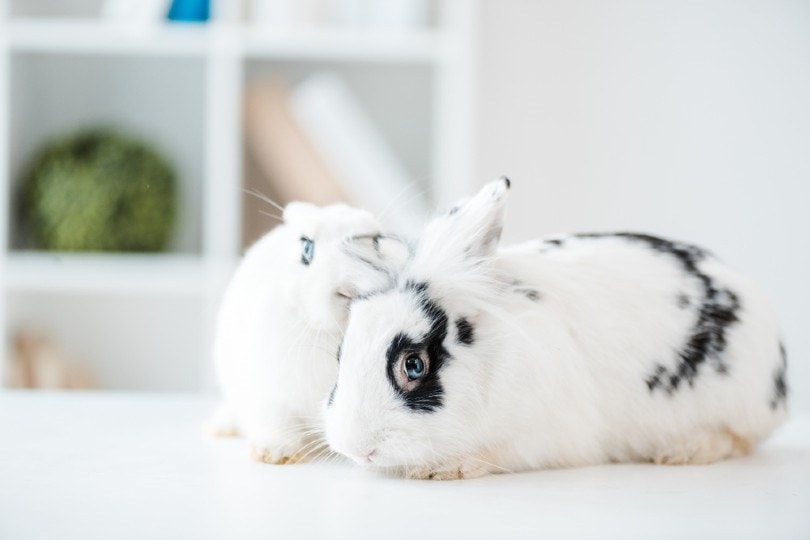
Rabbits have scent glands near their anus that secrete a tarry, often sticky, brown or black substance with a musk-like scent. If your rabbit isn’t cleaning themselves properly, these glands can become clogged or infected, leading to more noticeable odors. When this happens, you may need to have the glands manually cleaned to reduce the smell.

How to Get Rid of a Rabbit Pee Smell
Barring health problems or unsanitary conditions, rabbit odor is usually associated with urine. If your rabbit is peeing outside of the litter box or isn’t litter box trained, it’s important to use a cleaning solution or an enzymatic product that fully removes the ammonia smell from the area. You can buy commercial cleaning solutions for small animals or make your own DIY solution with white vinegar. The acidic properties in the white vinegar will penetrate and break up rabbit urine, no matter the surface. Make sure you keep your rabbit’s enclosure and litter box clean to avoid odor issues in the future.

Summary
Even if rabbits had a reputation for being smelly, this would be mostly unfounded. If a rabbit has a strong odor, it’s likely caused by a health problem or unsanitary conditions, rather than the rabbit themselves. These tips should help you determine the cause of your rabbit odor and find solutions to keep your home smelling fresh and clean.
Featured Image Credit: ZouZou, Shutterstock
